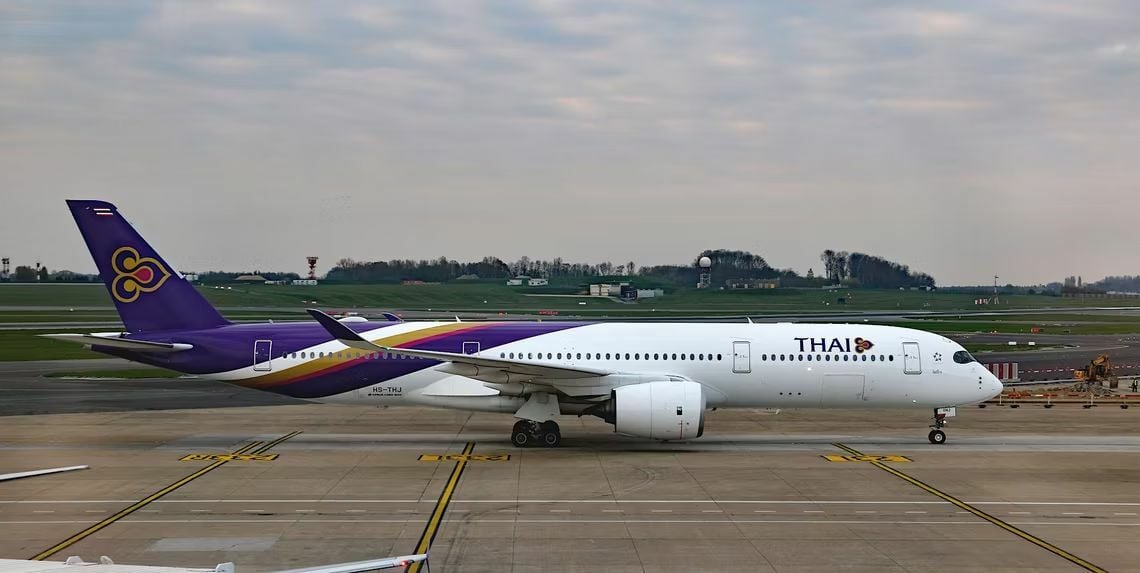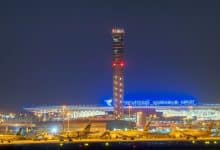Thailand’s ‘new’ Airbus A350 spotted with Thai Airways livery
Delivery does not appear to be on schedule

Thailand’s “new” Airbus A350 was spotted with Thai Airways livery last week in France.
At the end of October, Thai Airways announced an agreement to lease two Airbus A350-900s to enter service this month. We’re almost in February, and while it doesn’t appear that the aircraft will be in service on schedule, plans are being made, albeit a bit late.
On January 23, an Airbus A350-900 was spotted in Thai Airways livery at Airbus’ facilities in Toulouse. The aircraft was in its full Thai Airways colour scheme with engines installed. Subsequent tracking indicates that the aircraft moved from Toulouse to Bordeaux on January 27 for more pre-delivery work before a long flight to Bangkok.
Thai Airways is expanding its fleet by leasing two A350s. The airline’s current A350-900 fleet consists of 12 aircraft. The additional two jets will result in a fleet of 14.
This first aircraft is not exactly new, but it has not seen commercial passenger service either. Having had its first test flight in August 2019, according to data from ch-aviation.com, the jet has an estimated market value of US$110,00,000 (3.6 billion baht) and is owned by Park Aerospace Holdings. The A350 has only conducted test flights and a few other services related to maintenance and fitting.
It appears that this particular airframe was originally built for Chinese carrier Hainan Airlines and is listed as being ‘delivered on contract’ in December 2019. However, the pandemic likely played a role in Hainan Airlines’ inability to operate the aircraft and so it has spent the last three years at various French airports.
This aircraft may have been initially reallocated to ITA Airways as per outdated ch-aviation data. However, AIB Family Flights’ reporting of Thai Airways livery clearly indicates a change in direction.
While Thai Airways owns a number of Airbus A380s, it looks like the carrier plans to leave them in storage and lease newer and more efficient aircraft.
The Thai flag carrier is still recovering from massive financial mismanagement and needs to keep operating costs low while increasing capacity to meet the demand of a battered aviation market. The A380 doesn’t meet the airline’s new efficiency and operating-cost requirements.
Latest Thailand News
Follow The Thaiger on Google News:


























